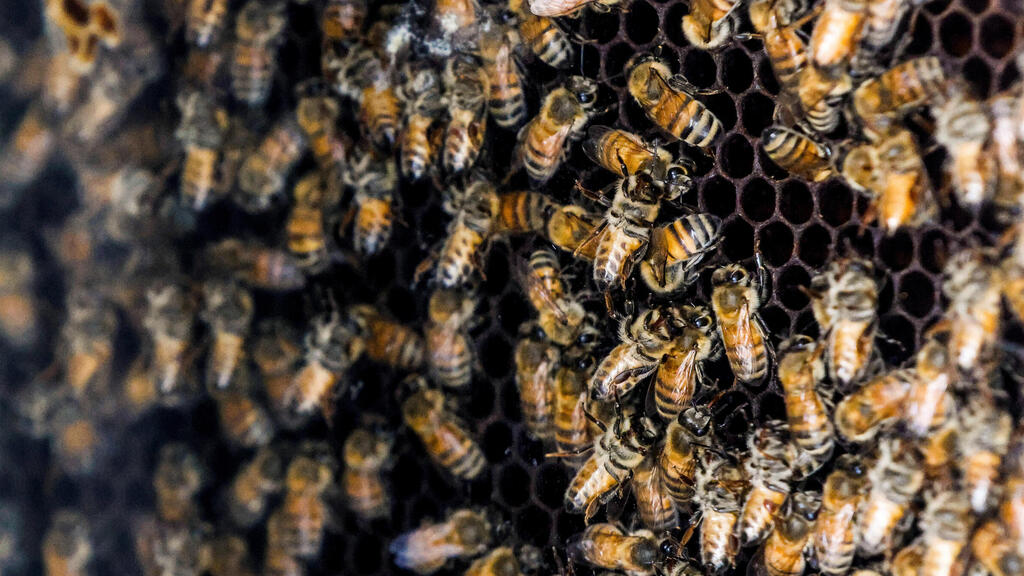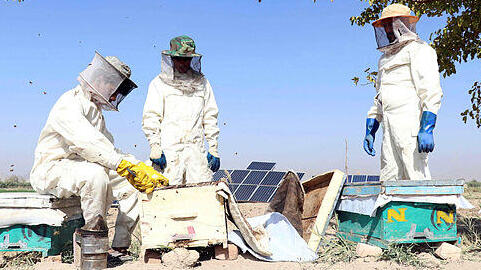This time, it wasn't the bulldozers or the bullets, but the rain and the wind. Weather kept the bees confined to their hives in the spring, when they should have been out foraging for nectar.
More than 15 years of Israeli blockade has not quite killed off beekeeping in Gaza. But beekeepers say climate change just might.
"This year was the worst for beekeepers in Gaza," said Waleed Abu Daqqa, who tends hives in the eastern section of the Palestinian coastal enclave. "Lots of bees have died."
Temperatures have been rising for half a century in the territory, where 2 million Palestinians live under an economically devastating blockade imposed by Israel and Egypt since Hamas Islamists took control in 2007.
Over recent years, the number of hives has almost been halved and the production of honey went down to 180 tonnes from 400 a few years ago, said Adham Al-Basyouni, an official from the agriculture ministry.
Beekeepers and their bees have lost access to prime agricultural land, bulldozed near the borders of the strip. The blockade and six wars between militants and Israel have made it difficult and expensive to import supplies.
And now, the "prime factor" causing a bee crisis is climate change caused by global warming, Baysouni said. This year, in Gaza, that unpredictable climate brought an unseasonable cold spell. Few Gazans had the right sort of hives to withstand it.
"We witnessed repeated rain storms, that forced the bees to stay inside the hives and they fed on what was inside and that led to poor production," he said.
Bees and other pollinators are vital to agriculture and wildlife around the world, and the impact of climate change is a global problem.
"Radical shifts in temperature, droughts, and floods are disrupting native ranges for pollinators, making ecosystems unsuitable for the processes needed to sustain populations, such as overwinter hibernation, spring nest establishment, and reproduction," wrote bee researchers Diana Cox-Foster and Gloria DeGrandi-Hoffman of the U.S. Department of Agriculture.
Ratib Sammour, a Gazan agricultural engineer and beekeeper, has built a successful business selling health products from bees and treating patients with bee stings, known as apitherapy. Now it is at risk. Not only has honey production fallen, but with it the quantity of other products such as royal jelly, bee pollen, bee venom and bee glue known as propolis.
"When the quantity of bees started to decline it reflected on us," he said.



